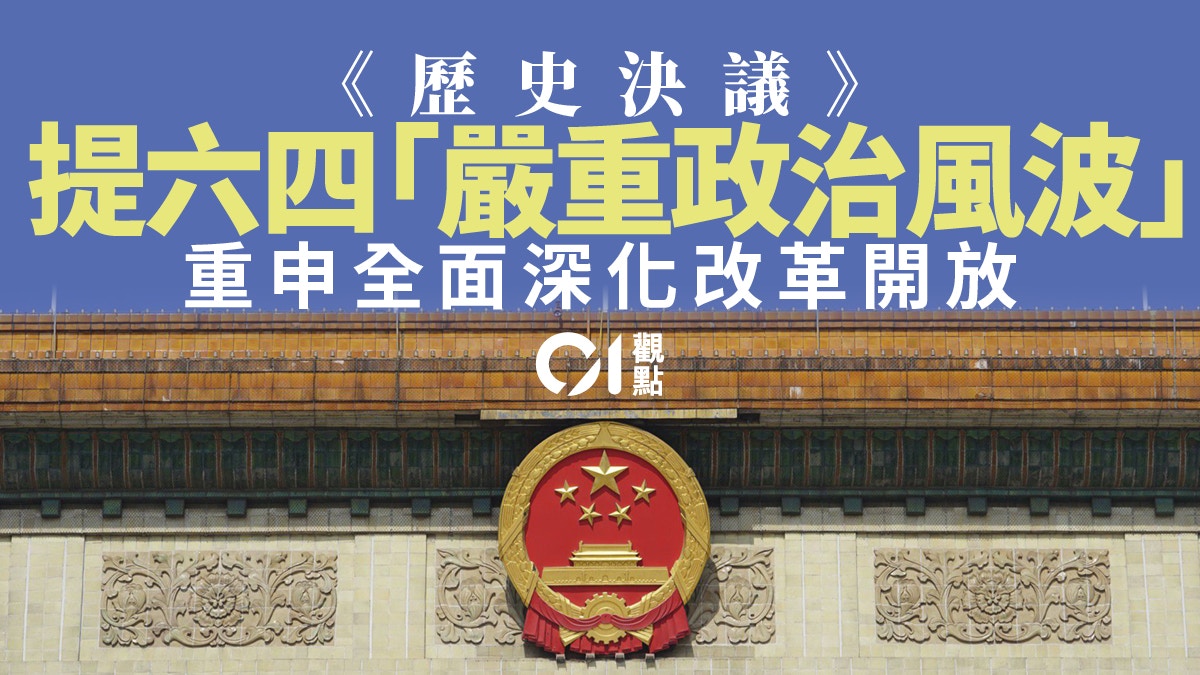Last Thursday (November 11), the Sixth Plenary Session of the 19th Central Committee of the Communist Party of China passed the "Resolution of the Central Committee of the Communist Party of China on the Party's Major Achievements and Historical Experience in a Century of Struggle" (hereinafter referred to as the "Resolution"), which is 132 paragraphs and more than 36,000 words The full text of the "Resolution" will be announced five days later, that is, this Tuesday (November 16).
Accompanying the publication was the explanation of the draft resolution made by General Secretary of the CPC Central Committee and President Xi Jinping at the meeting.
The content of the "Resolution" this time is divided into the preface and "Capturing the Great Victory of the New Democratic Revolution", "Completing the Socialist Revolution and Promoting Socialist Construction", "Conducting Reform and Opening Up and Socialist Modernization", and "Creating a New Era of Socialism with Chinese Characteristics" , "The Historical Significance of the Chinese Communist Party's Centennial Struggle", "The Historical Experience of the Chinese Communist Party's Centennial Struggle", and "The Communist Party of China in the New Era", among which the fourth chapter introducing Xi Jinping's reign takes up more than half of the space.
Looking at the entire text, "reform and opening up" appeared 40 times, and "people" appeared 249 times.
The picture shows the Chinese President Xi Jinping attending the Sixth Plenary Session of the Central Committee on November 11, 2021.
(AP)
No change in the qualitative nature of early events
Just as the preface of the "Resolution" clearly emphasizes, the "Resolution on Certain Historical Issues" in 1945 and the "Resolution on Certain Historical Issues of the Party Since the Founding of the People's Republic" in 1981 "the basic discourses and conclusions are still applicable to this day." The draft's explanation also mentioned that the Party Central Committee requires that "the evaluation of important events, important meetings, and important figures should be consistent with the existing conclusions of the Party Central Committee."
Specific examples include continuing to describe the "Cultural Revolution" as a "disaster", calling Lin Biao and Jiang Qing a "counter-revolutionary clique" who "utilized Comrade Mao Zedong's mistakes", and describing them as "carrying out a large number of criminal activities that harm the country and the people, resulting in a decade. "Civil unrest" shows that it has not changed much in its characterization of the past events in the early years.
Regarding the June 4th incident in 1989, former national leader Deng Xiaoping received a speech from military cadres after the incident and said: "This storm will come sooner or later. This is determined by the global climate and China's own microclimate. What must come is not shifted by people’s will... Later, it was inevitable that the situation would further develop into counter-revolutionary riots.” The old edition of "A Brief History of the Communist Party of China" by the Propaganda Department of the Communist Party of China (CCP) is the same as the new edition this year. Call it "counter-revolutionary riots."
Although the "Resolution" did not adopt the term "counter-revolutionary riots" as expected, it still applied Deng Xiaoping's "global climate" and "domestic microclimate."
Continue to deepen reform and opening up in an all-round way
Another focus of attention is the position of "reform and opening up" in the "Resolution".
Although its compilation of the historical significance and experience of the party's centuries of struggle did not say anything about it, it had previously quoted Xi Jinping's call to "carry the reform and opening to the end" at the celebration of the 40th anniversary of the "reform and opening up" three years ago.
What's more, both the communiqué and the end of the "Resolution" clearly reiterated the need to "fully deepen reform and opening up." The "Resolution" also followed the Hu Jinzhu era of bravely facing "long-term governance", "reform and opening up", "market economy", and "external environment." The discussion of the four major tests shows that some opinions that the "reform and opening up" are about to end are purely anxious.
What's more, looking at it from another angle, the nature of the "Resolution" is after all to summarize the past history. If the "reform and opening up" is not yet over, where would such a document require a large book?
Just like the goal of the founding of the People’s Republic of China in the past century to build a “socialist modernization” power, its appearance in the “Resolution” is even only half of the 21 times that of “reform and opening up”. Can it be said that the cause of building a “socialist modernization” country has come to an end NS?
On the contrary, because the country still has to go on the road of "reform and opening up" and socialist modernization, it has not withdrawn from the stage of history. Naturally, the "Resolution" has no reason to do much on these two tasks that are still in progress. tidy.
China is pursuing reform and opening up, and its economy is developing rapidly. It is only when "common prosperity" becomes possible from a political slogan.
(Getty Images)
Finally, compared to some people from outside who take a specific political perspective to examine the views on historical events and the issue of "reform and opening up", the most noteworthy aspect of the "Resolution" should actually be its ten "persistences" as historical experience. An "adherence to the people's supremacy" is also clearly reflected in the text. Not only does "people" appear in almost every paragraph, but it also recalls the original mission of "for the happiness of the Chinese people" as well as looking forward to the future. Enjoy a happier and healthier life."
This kind of governance concept that puts the fundamental interests of the "people" in the most important place is undoubtedly what governors in other places, including Hong Kong, need to learn.
How much is Hong Kong lagging behind to promote common prosperity?
What did the senior officials learn from the Centennial Party Celebration?
Knowing China can't be peeped

